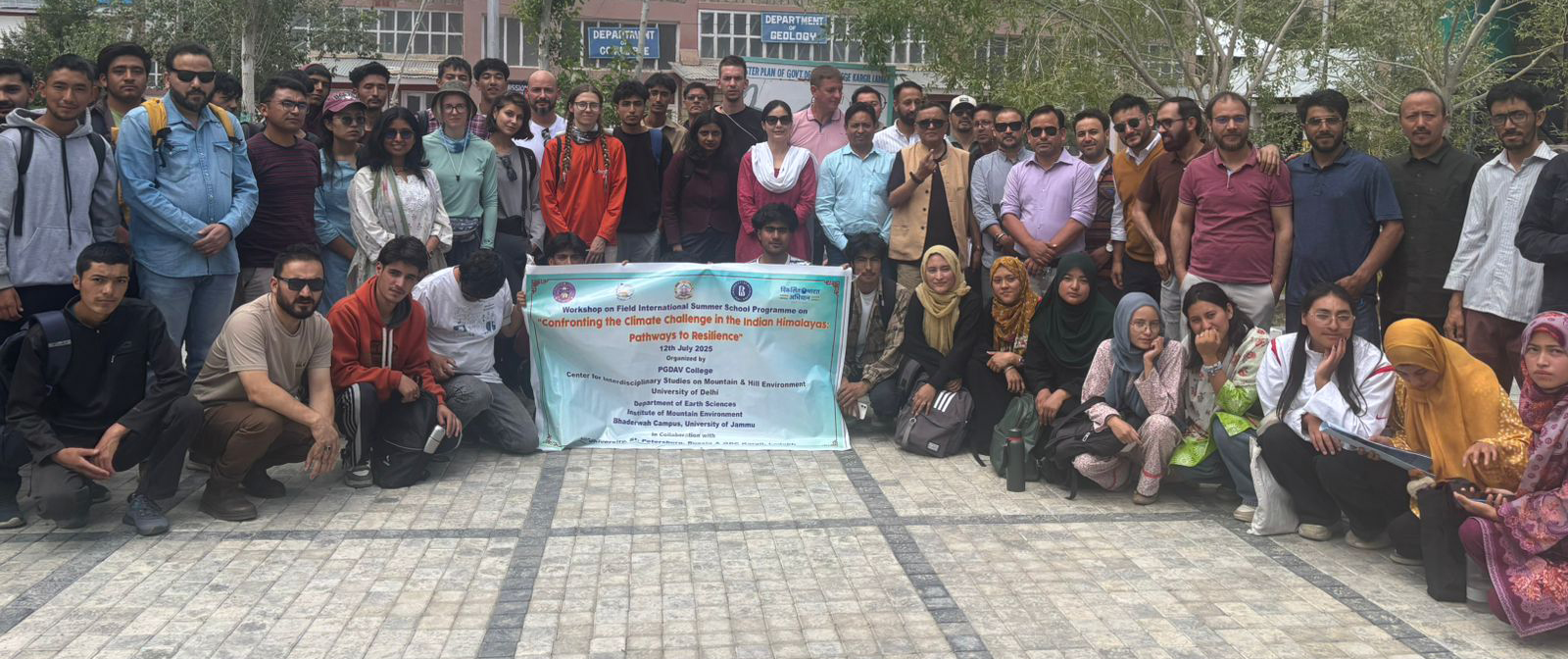 Early Times Report Early Times Report
KARGIL, July 14: The two-week-long International Summer School on Climate Change in the Indian Himalayan Region concluded successfully in Ladakh today, with significant insights and actionable recommendations shared by academicians and international collaborators. The programme was jointly organized by PGDAV College (University of Delhi), the Centre for Interdisciplinary Studies on Mountain and Hill Environment (CISHME), University of Delhi, the Department of Earth Sciences, Institute of Mountain Environment, Bhaderwah Campus, University of Jammu, and HSE University (St. Petersburg, Russia).
The summer school featured ten days of intensive fieldwork and interdisciplinary academic exchange, involving students, researchers, and faculty from all four institutions. Participants engaged closely with local communities, government representatives, and ecological experts across various regions of Leh and Kargil, assessing the direct impact of climate change on vulnerable mountain ecosystems and rural livelihoods.
Prof. Rahul Gupta, Rector of Bhaderwah Campus, University of Jammu, emphasized, "Cross-community analysis across the Indian Himalayan Region provides deeper understanding of the intricate relationship between climate change, rural livelihoods, and community resilience. This international academic partnership has added valuable perspective to the global climate discourse."
Ground-Level Interactions and Site Visits, Participants visited multiple climate-sensitive areas, including Upper and Lower Liker, Alchi Hydro Project, Saspol, Hanu Gogma, Hanu Yokma, and Daa (Leh district) and Salma, Chamba, Hanu Gogma (Kargil district). They also interacted with faculty and students of GDC Kargil, members of LAHDC, and representatives from Islamia School Trust and local communities.
Dr. Pardeep Singh, Assistant Professor, Environmental Studies, PGDAV College and Convener of the Summer School, stated, "Merging scientific assessments with grassroots wisdom is key to crafting long-term climate solutions in fragile mountain ecosystems."
|
